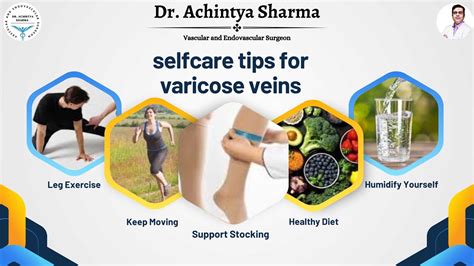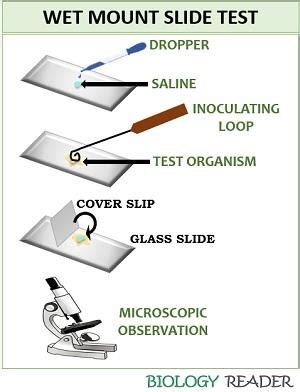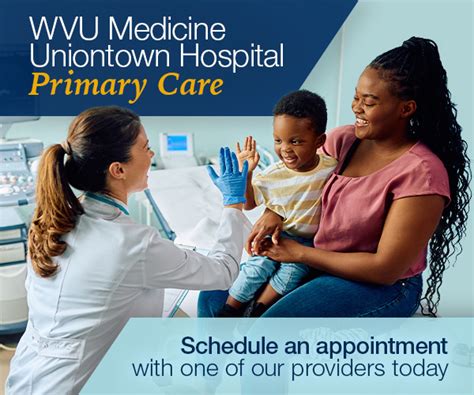How To Treat Varicose Veins? Selfcare Tips

Varicose veins, those dilated, twisted, and often painful blood vessels that can appear on the surface of the skin, typically on the legs. They are a common problem, affecting millions of people worldwide, and can be both a cosmetic concern and a health issue. While varicose veins can be treated with medical procedures, self-care tips can also play a significant role in alleviating symptoms, preventing progression, and improving overall vein health.
Understanding Varicose Veins
Before we dive into self-care tips, it’s essential to understand what causes varicose veins. They occur when the valves within the veins, which prevent blood from flowing backward, become weakened or damaged. This can lead to blood pooling, increased pressure, and subsequent vein dilation. Factors that contribute to varicose veins include genetics, aging, obesity, pregnancy, and prolonged standing or sitting.
Self-Care Tips for Varicose Veins
While self-care measures may not eliminate varicose veins entirely, they can help reduce symptoms, slow progression, and improve overall circulation. Here are some effective self-care tips to treat varicose veins:
- Elevate Your Legs: Whenever possible, elevate your legs above the level of your heart to reduce swelling and promote blood flow. This can be done by propping up your legs on a pillow or cushion while sitting or lying down.
- Exercise Regularly: Regular exercise, such as walking, can help improve circulation and reduce pressure on the veins. Aim for at least 30 minutes of moderate-intensity exercise per day.
- Maintain a Healthy Weight: Excess weight can put additional pressure on the veins, worsening varicose veins. Eating a balanced diet and engaging in regular physical activity can help you maintain a healthy weight.
- Avoid Prolonged Standing or Sitting: If your job requires standing or sitting for long periods, take regular breaks to stretch and move around. This can help reduce pressure on the veins and improve circulation.
- Wear Compression Stockings: Compression stockings can help improve blood flow and reduce swelling. They are available in various compression levels, so be sure to consult with your doctor to determine the best level for your needs.
- Avoid Tight Clothing: Tight clothing, particularly around the waist, thighs, and legs, can constrict blood flow and worsen varicose veins. Opt for loose, comfortable clothing instead.
- Stay Hydrated: Drinking plenty of water can help improve circulation and reduce blood pressure. Aim for at least eight glasses of water per day.
- Avoid Excessive Heat: Avoid exposure to excessive heat, such as hot baths, saunas, or hot tubs, as this can cause blood vessels to dilate and worsen varicose veins.
- Get Enough Sleep: Getting enough sleep can help improve circulation and reduce inflammation. Aim for 7-8 hours of sleep per night.
- Manage Stress: Stress can cause blood vessels to constrict, worsening varicose veins. Engage in stress-reducing activities, such as meditation, yoga, or deep breathing exercises.
Natural Remedies for Varicose Veins
In addition to self-care tips, some natural remedies may help alleviate varicose vein symptoms. These include:
- Horse Chestnut: Horse chestnut extract has anti-inflammatory properties and may help improve blood flow and reduce swelling.
- Ginkgo Biloba: Ginkgo biloba may help improve blood flow and reduce inflammation.
- Vitamin C: Vitamin C may help improve circulation and reduce oxidative stress.
- Essential Oils: Certain essential oils, such as peppermint, eucalyptus, and rosemary, may help improve circulation and reduce inflammation.
When to Seek Medical Attention
While self-care tips and natural remedies can help alleviate varicose vein symptoms, it’s essential to seek medical attention if you experience:
- Severe pain or swelling
- Skin ulcers or sores
- Bleeding or bruising
- Difficulty walking or standing
- Warmth or redness around the affected area
A healthcare professional can evaluate your varicose veins and recommend treatment options, such as sclerotherapy, laser therapy, or surgery, if necessary.
What are the most common causes of varicose veins?
+Varicose veins are commonly caused by genetics, aging, obesity, pregnancy, and prolonged standing or sitting. Weakened or damaged valves within the veins can also contribute to varicose veins.
How can I prevent varicose veins from getting worse?
+To prevent varicose veins from getting worse, maintain a healthy weight, exercise regularly, avoid prolonged standing or sitting, and elevate your legs above the level of your heart whenever possible.
Can varicose veins be treated without surgery?
+Yes, varicose veins can be treated without surgery. Self-care tips, such as elevating your legs, exercising regularly, and wearing compression stockings, can help alleviate symptoms. Natural remedies, such as horse chestnut and ginkgo biloba, may also help improve circulation and reduce inflammation.
In conclusion, self-care tips can play a significant role in alleviating varicose vein symptoms, preventing progression, and improving overall vein health. By incorporating these tips into your daily routine, you can reduce the appearance and discomfort of varicose veins and promote healthier blood flow. Remember to consult with a healthcare professional if you experience severe symptoms or if you’re concerned about the appearance or health of your veins.



